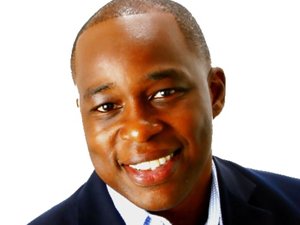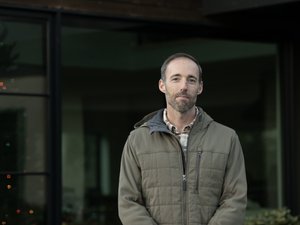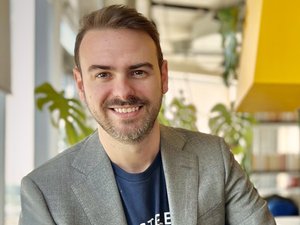The dance has finally stopped. The days of record levels of venture capital money pouring into tech startups are largely over, as rapid interest rate hikes over the past year and the March collapse of tech-friendly Silicon Valley Bank have left investors wary.
But the silver lining of a funding slowdown is that it tends to shine a brighter spotlight on companies with solid fundamentals. We’re talking former Inno on Fire awardees like Rose Health, which was sold last year to a West Coast company, or Hawkeye 360, which has blossomed through multiple stages of VC investments, most recently raising $58 million in a Series D-1 round.
These companies you’ll read about here are weathering the storm, for now, though only time will tell how high they will fly. Some have raised hundreds of millions of dollars, others have pulled in just a fraction of that. Some are adding locations and staff, others are pivoting to new technology. Some are younger than we’d normally spotlight but have veteran experience behind them. Some are making their industries more equitable, others are making their industries more efficient.
For many reasons, these companies have caught the eyes of the local startup community and we’ve selected them based on nominations to the Washington Business Journal and DC Inno, as well as from our news coverage from the past year. We categorized them by what they do or whom their products are targeting.
For each category, we have selected a “Blazer,” an entity so red-hot that you can’t ignore it.
So take some time and get to know our 2023 class of Fire Awards honorees.
Check out Richmond's Fire Awards honorees
Software, Cyber and Data
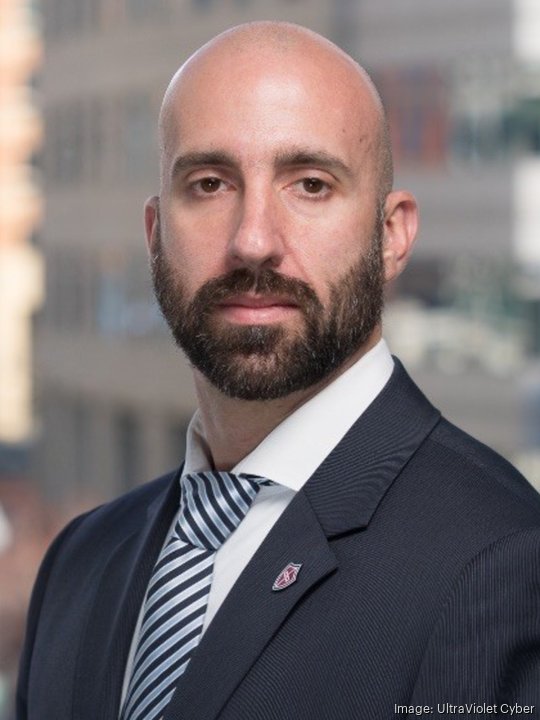
UltraViolet Cyber — This private-equity backed company was formed last year through the Voltron combination of McLean-based W@tchTower, Stage 2 Security in Lanham, Phoenix-based Mosaic451 and Metmox in Schaumberg, Illinois. Based in McLean and owned by New York’s Achieve Partners, UltraViolet Cyber is setting itself apart from competitors by melding two approaches to cybersecurity. Its “red” team is made up of offensive-minded cybersecurity professionals who do penetration testing and look for holes in a client’s cybersecurity defenses. Its “blue” team is made up of defensive-minded professionals who implement the plans to plug those holes. Not even a year old, it already has 400 employees and more than $50 million in annual recurring revenue.
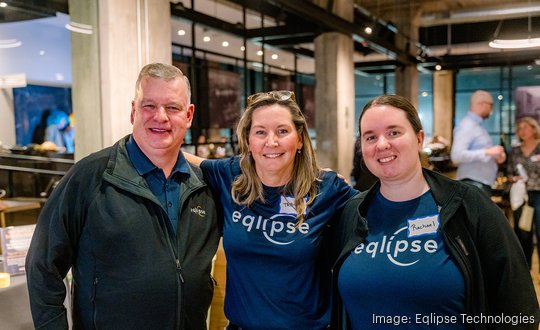
Eqlipse Technologies LLC (Blazer winner) — Another defense and cybersecurity contractor stood up by a private equity firm is Eqlipse Technologies LLC. This combination of five legacy companies, based in Annapolis Junction, Maryland, and with operations in Herndon, performs cyber and signals intelligence for national security customers and came out of the gate with $200 million in annual revenue. With backing from its deep-pocketed owner, Arlington Capital Partners, Eqlipse intends to keep the momentum going by building out a 31,000-square-foot sensitive compartmented information facility near its HQ and adding about 100 more to its 620-person staff.
Trustible — Though it’s still pre-revenue, this D.C.-based artificial intelligence governance startup has quite a pedigree of co-founders. Andrew Gamino-Cheong and Gerald Kierce-Iturrioz are alums FiscalNote Holdings Inc., which went public in July 2022. After recently raising $1.6 million in a seed round led by New York venture capital firm Harlem Capital, Trustible is poised to make a splash in the burgeoning AI policy market.
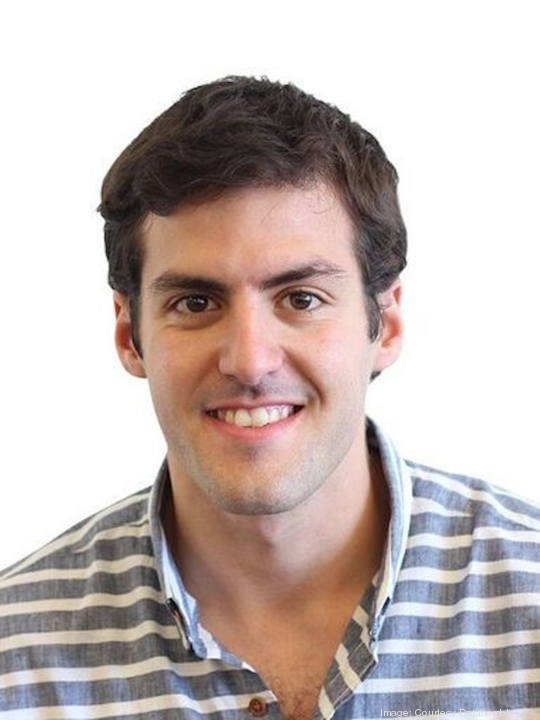
Datasembly — This 9-year-old Tysons tech startup that helps grocers and other retailers make more informed pricing decisions raised $16 million in a Series B funding round in Match. It’s investing in new data-gathering tools and product teams and is expanding its client base by providing its data to pharmacies. Profitability has been elusive for company, but CEO Ben Reich said inflationary pressure in the consumer-products space has created “a real desperation” for competitive tracking among its base of clients. He declined to share revenue figures but said that annual revenue doubled during the peak of the pandemic and has climbed by 50% or more in each of the last six years.
CalypsoAI — Coming in on the wave of hype around generative artificial intelligence, this 5-year-old firm raised $23 million in a Series A-1 round to double its headcount over the next two years and continue building out AI tools used to help its government and private sector clients protect data from leaking or getting attacked by hackers. Founded in Silicon Valley, calypsoAI relocated to D.C. in 2020 to be closer to key federal clients, such as the Department of Defense and the Department of Homeland Security. Its backers include Lockheed Martin Ventures and former YouTube CEO Susan Wojcicki and her sister, 23andMe co-founder Anne Wojcicki. It has raised $38.2 million to date.
Clean tech
Energix Renewables — This unit of an Israeli renewable company established its U.S. headquarters in Arlington three years ago and already it has outgrown its space. Energix first entered the U.S. market in 2016 and in short order has become one of the largest developers of solar power in the Mid-Atlantic. Earlier this year, it relocated from the Courthouse neighborhood to larger digs in Rosslyn, where it now houses roughly 80 employees — and look for its headcount to keep expanding. It just secured $520 million in financing to develop five projects in Virginia and a sixth in Pennsylvania that will add about 416 megawatts of solar power to local energy grids — enough wattage to power nearly 70,000 homes — and more than double its energy-producing capacity.
Hydrosat — The 5-year-old D.C. company, led by CEO and co-founder Pieter Fossel, uses thermal satellite data and analytics to measure climate change’s impact on crops, assessing things like water scarcity and disease, and using its findings to help agribusinesses devise better irrigation methods and predict crop yields. It announced $20 million in new funding this year — a $15 million Series A round and an additional $5 million of nondilutive funding, bringing its total lifetime funding to more than $35 million. It also recently scored a new $1.2 million contract with the National Air and Space Intelligence Center and struck its first-ever acquisition, buying Netherlands-based competitor IrriWatch in a deal it says will expand its reach into more markets.
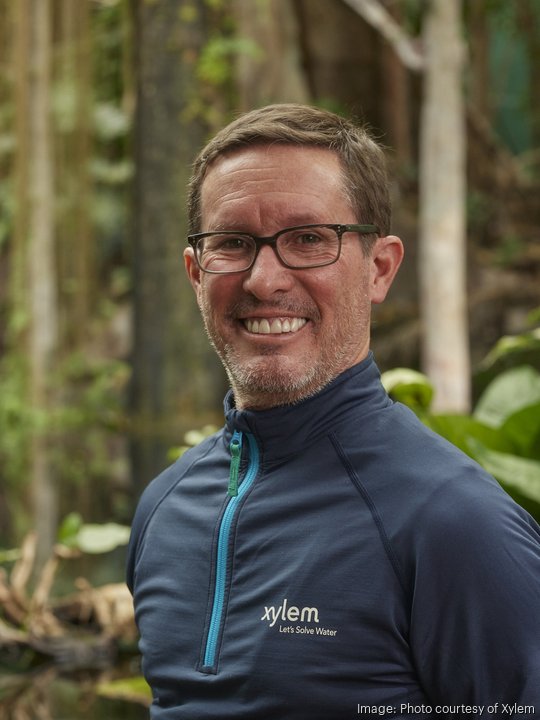
Xylem (Blazer winner) — Founded in New York in 2011, publicly traded Xylem relocated its headquarters to D.C. last year to be closer to be the “diverse set of stakeholders who work together towards solving water challenges around the world,” CEO Patrick Decker said at the time. Already one of the world’s foremost water treatment technology companies — it serves companies and utilities in more than 150 countries — Xylem made a huge splash earlier this year when it acquired Pittsburgh’s Evoqua Water Technologies Corp. for $7.5 billion in stock. That deal, Xylem said, makes it the “world’s largest pure-play water technology company,” with more than $7.3 billion in annual revenue and 22,000 employees across its ranks.

Scout Motors — The year-old electric vehicle company is a spinoff of German automaker Volkswagen AG and is headed by Scott Keogh, the former president and CEO of Reston-based Volkswagen Group of America. Armed with $100 million in capital from its parent company, Scout Motors aims to deliver its first two vehicles — a small SUV and a larger truck — in 2026, according to Keogh, who left his former posts in August 2022 to oversee the new venture. The startup is based in Tysons but could end up relocating to South Carolina, where it is building a $2 billion manufacturing plant outside of Columbia. That factory, which will span more than 1,000 acres, “has the potential” to create 4,000 jobs and produce more than 200,000 vehicles, the company said earlier this year.
Motor — This 3-year-old startup raised $7 million in a Series A funding round in February to build out its app that lets consumers sign up to lease electric cars made by the likes of Tesla, Volkswagen and Nissan, on a month-to-month basis. Monthly subscriptions range from $749 to $1,799, depending on the model of car, and include title and registration, insurance, roadside assistance and maintenance. The Arlington company’s goal this year is to expand its 10-person team by three to five people and expand its app-based service to new markets.
Health and cannabis
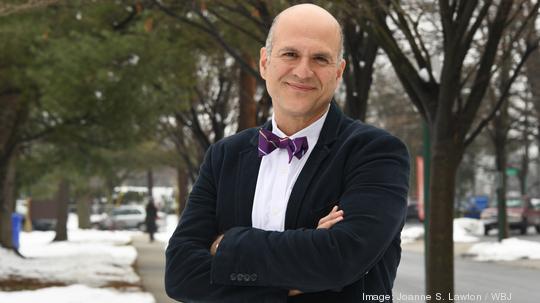
Aledade (Blazer winner) — This 9-year-old Bethesda-based health care startup just pulled in a whopping $260 million in a Series F funding round that closed in June, bringing its valuation to around $3.5 billion. Co-founded by CEO Dr. Farzad Mostashari, Aledade helps independent physician practices implement care models that compensate them based on health results instead of fees for services rendered. It plans to use the funds to expand its market beyond the 1,500 practices across 45 states and D.C, add more health plans to its network and and possibly make more acquisitions. The company, which says it’s been profitable since 2020, generated more than $475 million in revenue in 2022, a 50% increase from 2021.
Veriheal — The 6-year-old D.C. company offers a web-based platform that connects patients seeking medical marijuana cards with doctors and provides ongoing support to patients for an annual feel. Last year it purchased Plainview, New York’s MarijuanaDoctors.com for $3 million, expanding its reach in the U.S., and now it is gearing up to expand its tech platform to Europe in 2024. It also has a media arm that creates educational videos to help people learn about medical cannabis, and works with dispensaries to offer discounts for patients.
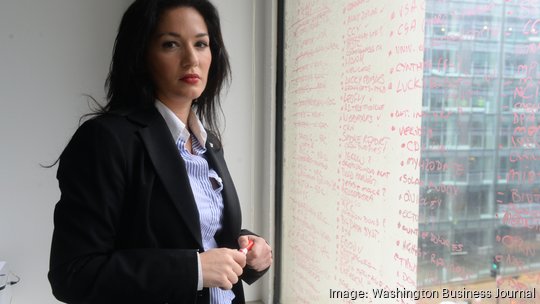
CTrust — Founded by a serial entrepreneur in the cannabis space, the year-old company provides business credit risk scoring and monitoring for cannabis operators looking to obtain financing from lenders. It’s coming online at a time when more and more states are legalizing marijuana for medical and recreational use and jurisdictions, such as Maryland, are opening up the marketplace to more operators. The firm was founded in Dallas but is plotting a move to D.C., where founder Giadha Aguirre de Carcer lives. Aguirre de Carcer, best known for founding the cannabis analytics firm New Frontier Data in 2014, has so far raised about $500,000 in a seed round and said in the spring that she was “in discussions” about raising up to $2.5 million in a Series A funding round.
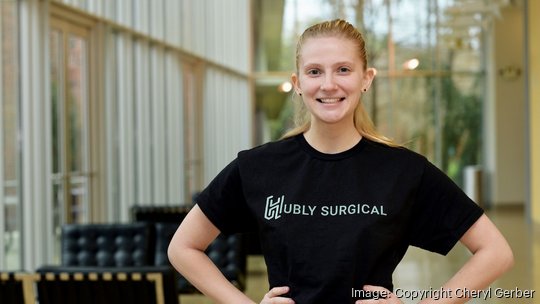
Hubly Surgical — Fresh off a seed round, this medical device company that aims to make brain surgery safer just won the Food and Drug Administration’s approval to take its signature product to market. That product, dubbed the Hubly Drill, is an electric system built to help doctors more safely and effectively drill holes into a patient’s skull without damaging underlying tissue. The six-person company, with offices in D.C. and Chicago, was founded by Casey Qadir, one of the Washington Business Journal’s 25 Under 25 honorees in 2021. Dozens of hospitals had already signaled their intention to buy the device once the FDA gave the green light and now, armed with $3 million from the seed round, Hubly has all the pieces in place for an initial rollout of 500 drills, Grage said.
Capra Biosciences — The 3-year-old biotech startup is building a new 10,000-square-foot headquarters in Manassas to scale up its technology. The company’s main product is a three-foot bioreactor that transforms raw materials like food waste and agricultural byproducts into chemicals that can be used in cosmetics. The expansion is supported by a $2 million contract through a special BioMADE Project Call focused on advancing bioreactor design and development, with backing from Schmidt Futures. Capra Biosciences is eyeing 2024 to move out of the pre-revenue stage and hire more staff to bring its product to a wider U.S. biomanufacturing market.
Funders and Entrepreneurs
Phillip Merrick, pgEdge Inc. — This new startup came out of stealth mode in March with $9 million in seed financing. Founded by Phillip Merrick, pgEdge runs a platform that copies databases using open-source technology, PostgreSQL, so websites can run faster, even in locations that sit a great distance from servers. Merrick, a serial entrepreneur who co-founded or led three companies that have sold for a combined $1.2 billion, says he sees pgEdge as the biggest opportunity he’s ever been involved in. With its recent funds, the Alexandria startup plans to grow its sales team and staff of about 20, nab a bigger client base and conclude the beta testing phase of its product rollout in the fourth quarter. He is aiming to have a big enough client base to pursue a Series A venture capital investment in the first half of 2024.
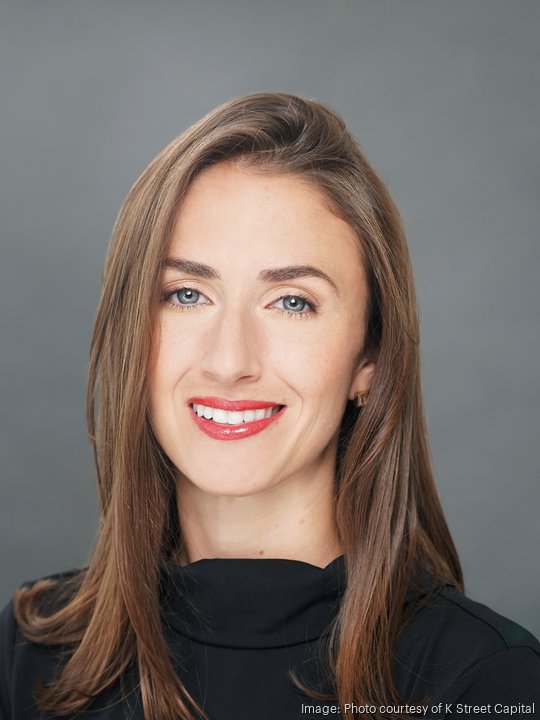
K Street Capital (Blazer winner) — The 10-year-old VC firm has invested in 70 startups as an angel investor network, but this year launched its first fund of $25 million to invest in early-stage companies ranging from fintech firms to educational technology and and government services tech firms. Led by Executive Director Paige Soya, the eight-employee firm has invested in three startups through the fund, including McLean-based fintech company NFTYDoor and D.C. software-as-a-service company Procurated, this year and plans to invest in five more before the year is out. It’s especially focused on bringing more women and minority founders into the D.C. tech ecosystem.
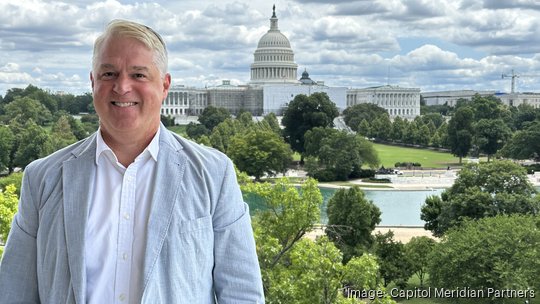
Capitol Meridian Partners — Founded by Carlyle Group alums Adam Palmer and Brooke Coburn, this D.C.-based VC has invested invested more than $300 million in three companies over its short lifespan. With a 10-person staff, it is largely focused on firms in the government contracting, defense and aerospace industries and is aiming to invest in eight to 10 companies over the next few years.
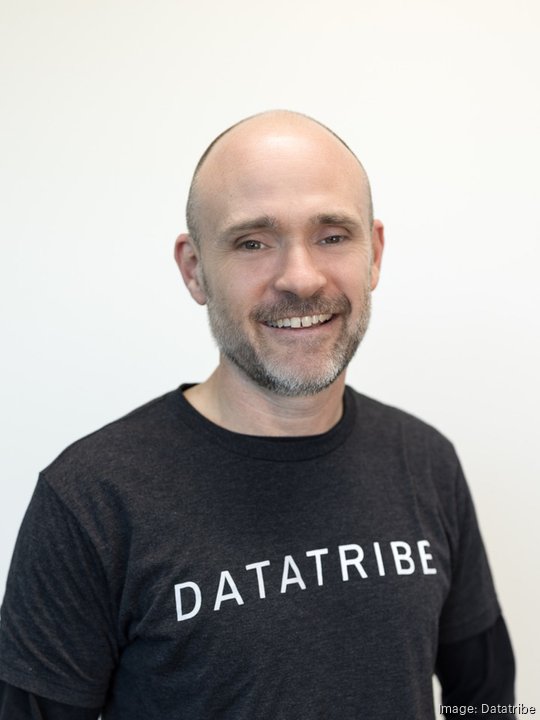
Datatribe — This 7-year-old startup founded in Fulton, Maryland, invests in and co-builds cybersecurity and data science startups. It has made 32 investments since its inception, according to Crunchbase, and its portfolio companies employ over 600 people, according to Datatribe Managing Director John Funge. Apart from its primary mission of co-building three to four startups per year, members of its 12 people staff, like Chief Customer Officer Maurice Boissiere, are active in the local tech startup ecosystem by helping orchestrate events such as the DMV BLCK VC Summit and conducting its annual cybersecurity startup challenge, offering $20,000 in prize money to finalists and up to $2 million in seed capital to one winner.
Motley Fool Ventures — The Alexandria venture capital arm of financial advisory firm The Motley Fool is in the midst of raising $300 million for its second fund to continue investing in early-stage technology companies with diverse management teams and demonstrated revenue growth year over year. Now with a new managing partner — founding Managing Partner Ollen Douglass left in May — it has made at least four investments from its second fund and recently participated in a $10 million Series C-1 round for Arlington catering startup Hungry Marketplace.
Consumer

Keep Company — Founded a little over a year ago by CEO Adrienne Prentice and Chief Operating Officer Claudia Naim-Burt, Bethesda’s Keep Company has a simple mission: help companies retain parents and caregivers as employees. It does this through a platform that pairs small groups of parents and caregivers with a coach who guides them through a behavioral science-based curriculum that helps them achieve work-life balance and teaches them to be less reactive. The duo recently participated in the Techstars Longevity accelerator and raised $800,000, including $200,000 from the Maryland Technology Development Corp. (TEDCO) social impact fund. For now, it’s primarily targeting law firms — Prentice is a former attorney who has experienced the difficulties of raising a child while working at large law firm — but it is looking to expand into other industries, including health care.
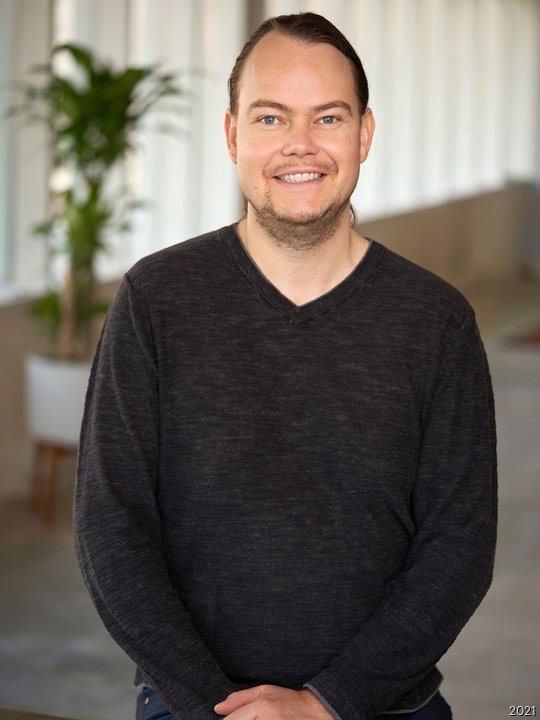
Futr — This Silver Spring debit card provider raised $5.3 million in a seed funding round and is looking to look to double its head count, to more than 40 employees, in 2023. Founded in 2021 by CEO Jean-Louis Warnholz and Chief Technology Officer Kamal Bhattacharya, Futr offers cardholders rewards for making low-carbon choices and plans to add additional financial features throughout the year.
Cava (Blazer winner) — In what’s been a lackluster year for initial public offerings, this D.C.-based fast-casual restaurant chain raised a whopping $318 million when it went public in mid-June. The shares hit the market at $22 and by the end of the first trading day they had nearly doubled, and have since climbed as high as $58. The company, which has more than 260 restaurants across 22 states, is still in a post-IPO quiet period but it has said it plans to use the proceeds to pay down debt and accelerate its expansion. It has said that it aims to have 1,000 stores by 2032. As of Aug. 8, Cava had a market cap of roughly $5.74 billion.

Nevly — This 2-year-old D.C. fintech helps improve people’s financial health through an app-based subscription service that promises to meaningfully boost credit scores within a matter of months. Founded by Eric Blue, a former attorney and investment banker, Nevly offers checking and savings accounts with no overdraft or account fees, a fee-free debit card and tools that spot errors on credit reports and track payment due dates. The startup has raised $1.25 million in a pre-seed round, funded by Palo Alto, California, venture firm Tenacity Venture Capital.
Vegetable and Butcher — The 7-year-old food delivery startup is quadrupling its space in a move to Prince George’s County from Northeast D.C. after receiving nearly $1 million in loans and grants from the county and the state of Maryland. Founded by Turner Hoff and Ariane Valle, the duo plans to create about 184 jobs — more than triple its current 56-person headcount — over the next three years as it looks to expand its service across the Mid-Atlantic.
